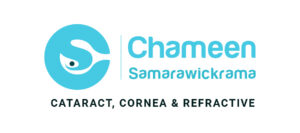Imagine a world where your vision is no longer crystal clear, where everyday tasks become increasingly challenging and the vibrant colours of life seem muted. This is the reality for individuals living with Cataract, a common eye condition that affects millions of people worldwide. In the world of ophthalmology, few conditions are as prevalent and impactful as Cataract. These vision impairments can cast a hazy veil over the world, making it difficult to engage in daily activities and enjoy life. If you’ve noticed a decline in your vision or experienced the telltale signs of Cataract, you may be wondering if Cataract surgery is the solution for you.
Let’s take a deeper look into Cataract and learn more about the signs and symptoms that may indicate their presence.
What is Cataract?
Imagine your eye as a camera, capturing vibrant images of the world around you. Now, picture Cataract as a hazy filter that obscures that lens. Cataract is a natural part of ageing and occurs when the proteins in your eye’s lens begin to clump together, clouding your vision. While they can develop slowly over time, they can also suddenly worsen, leaving you longing for the sharp focus of yesteryears.
Signs and Symptoms of Cataract:
Wondering if you might be dealing with Cataract? Here are a few telltale signs that your vision might be compromised:
- Blurred or Fuzzy Vision: If your once-clear vision has become increasingly blurry, making it difficult to focus on objects, read or drive, Cataract could be to blame.
- Sensitivity to Light: Do bright lights, especially at night, seem to have an intense glare or halo effect? Cataract can make your eyes more sensitive to light, causing discomfort and vision disturbances.
- Dull, Faded Colours: Cataract can dull the vibrant hues of the world around you, making everything appear washed out or yellowed. Say goodbye to enjoying those beautiful Australian sunsets!
- Frequent Changes in Prescription Glasses: If you find yourself needing new glasses more frequently, it may not be because of an edgy fashion trend. Cataract can cause changes in your vision, often necessitating a change in your prescription.
Why Do Cataract Occur?
While aging is the primary cause of Cataract, there are other risk factors that can hasten their development. These include:
- Family History: If your parents or siblings have had Cataract, your chances of developing them increase.
- Chronic Diseases: Conditions like diabetes or high blood pressure can elevate your risk; so, keeping them under control is crucial.
- Smoking and Alcohol: Unhealthy habits can harm more than just your lungs and liver. Long-term smoking and excessive alcohol consumption can increase your chances of developing Cataract.
- Steroid Use: Prolonged use of certain medications, such as corticosteroids, can increase the risk of Cataract development. If you require long-term steroid treatment, it’s important to discuss the potential risks with your healthcare provider.
- Trauma: Physical injury or trauma to the eye can also increase the likelihood of developing Cataract. Any significant damage to the eye’s structure can disrupt the normal functioning of the lens and contribute to Cataract formation.
- Ultraviolet (UV) Radiation: Aussies love their outdoor lifestyle, but prolonged exposure to the sun’s harmful UV rays can contribute to Cataract formation. Remember to wear those shades and a wide-brimmed hat!
How are Cataract treated?
Cataract can be effectively treated through a surgical procedure known as Cataract surgery. During this outpatient procedure, the cloudy lens causing vision impairment is gently removed and replaced with an artificial intraocular lens (IOL). The surgery is typically quick and performed under local anesthesia. Following the procedure, patients often experience a significant improvement in their vision, allowing them to see the world with renewed clarity and sharpness.
How long does it take to recover from Cataract surgery?
Recovery from Cataract surgery is a crucial phase in the journey towards improved vision. While the exact duration can vary from person to person, most individuals can expect a recovery period of approximately 4 to 6 weeks. However, in some cases, it may take up to 3 months for the eyes to fully heal and adjust to the artificial intraocular lens.
What can you do to reduce the recovery time?
During the recovery period, it is essential to prioritise rest and follow the post-operative instructions provided by your ophthalmologist. These instructions may include:
- Rest and Medications: Adequate rest allows your eyes to heal and recover more efficiently. Your ophthalmologist may prescribe eye drops or medications to prevent infection, reduce inflammation and promote healing. It is crucial to use these medications as directed.
- Protect Your Eyes: After Cataract surgery, it is important to take precautions to keep your eyes safe from trauma and contamination. Your ophthalmologist may advise you to wear an eye shield or protective glasses, especially while sleeping, to prevent accidental rubbing or poking of the eye.
- Avoid Strenuous Activities: Engaging in strenuous activities such as heavy lifting or intense exercise should be avoided during the initial stages of recovery. These activities can increase intraocular pressure and potentially strain the healing eye.
- Healthy Lifestyle Choices: Maintaining a healthy lifestyle can positively impact your recovery. Consuming a nutritious diet, staying hydrated and avoiding smoking can promote overall well-being and support the healing process.
- Follow-Up Visits: Regular follow-up visits with your ophthalmologist are essential to monitor your progress and ensure proper healing. These appointments provide an opportunity to your doctor to assess your vision, address any concerns and make any necessary adjustments.
Remember, each individual’s recovery journey is unique and it’s important to consult with your ophthalmologist for personalised guidance and recommendations based on your specific circumstances. By following these guidelines and giving your eyes the care they deserve, you can help reduce the recovery time and optimise your outcomes after cataract surgery.

Very informative! It’s helpful to understand the signs to look out for—especially as vision changes can be so gradual.
some truly interesting details you have written.